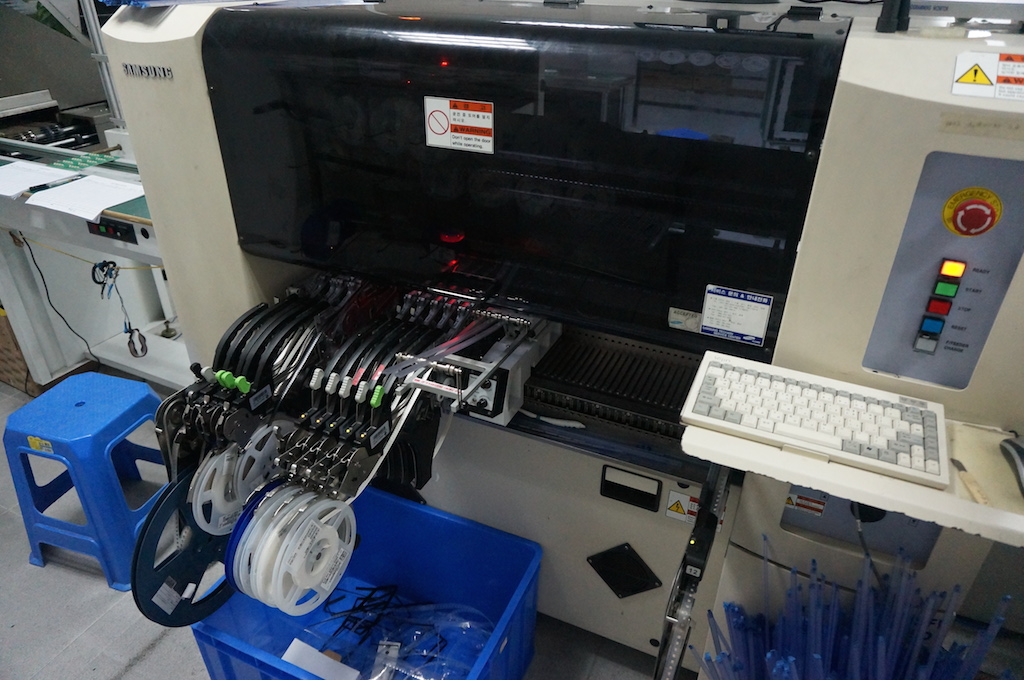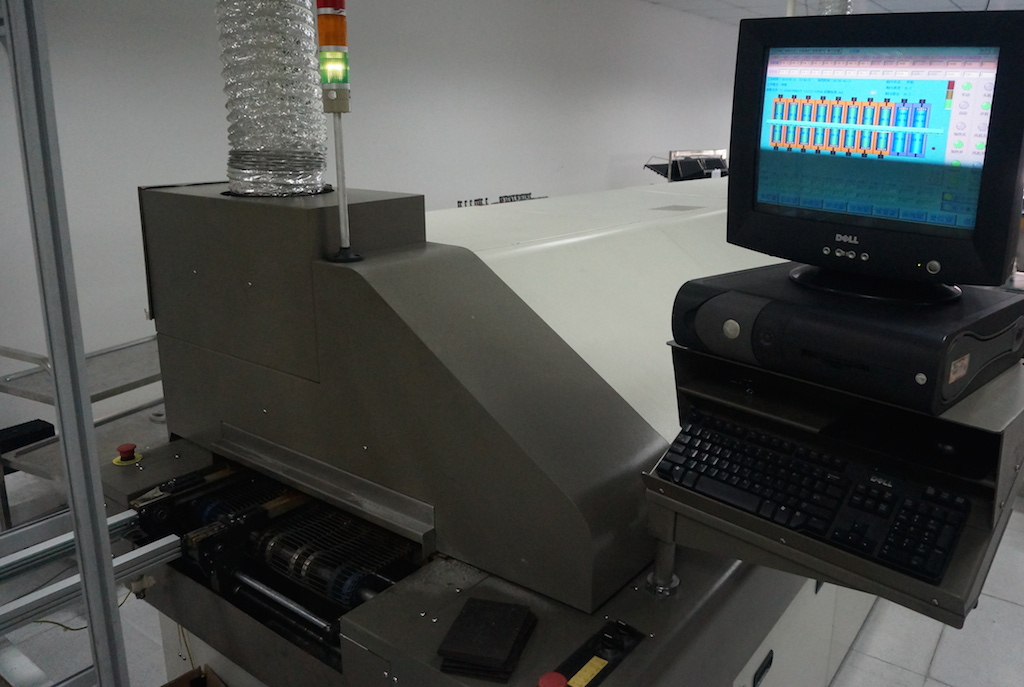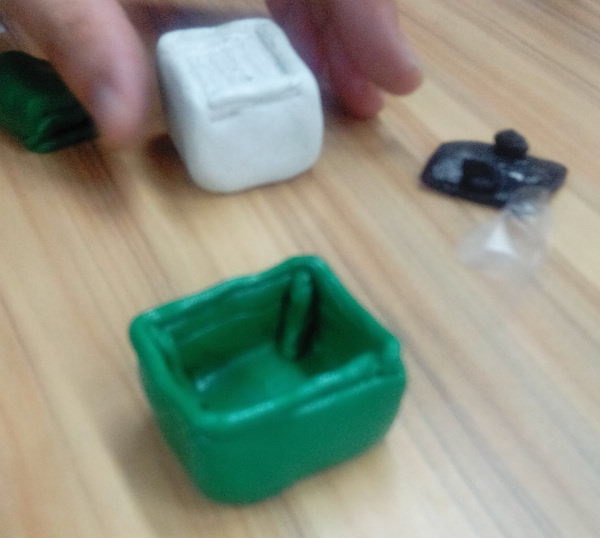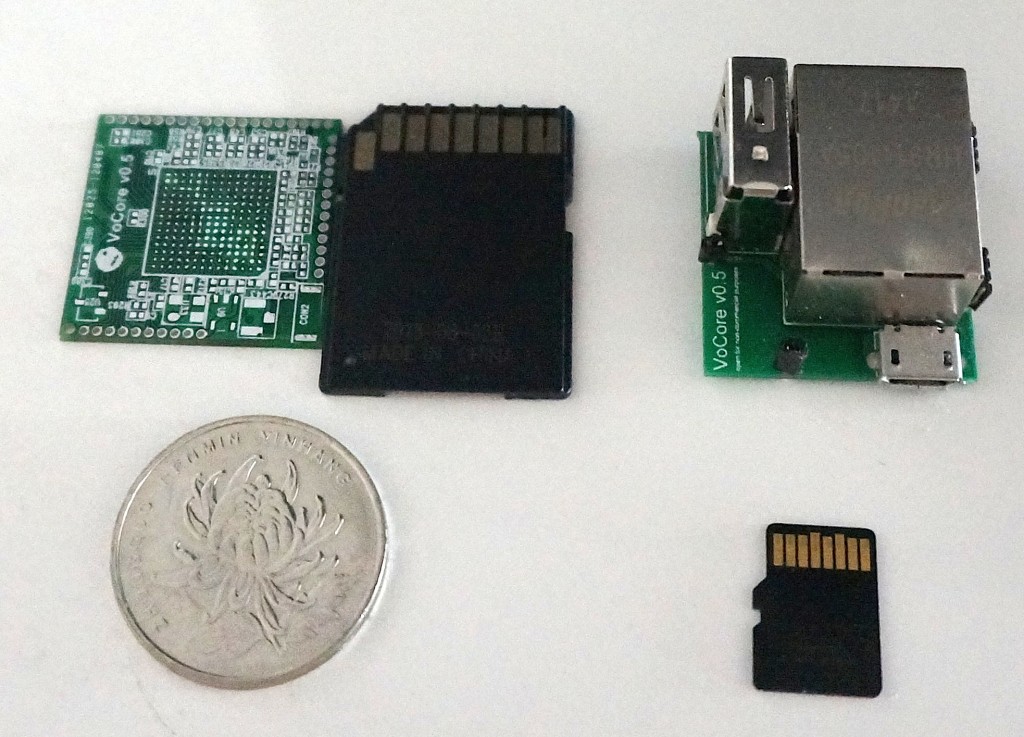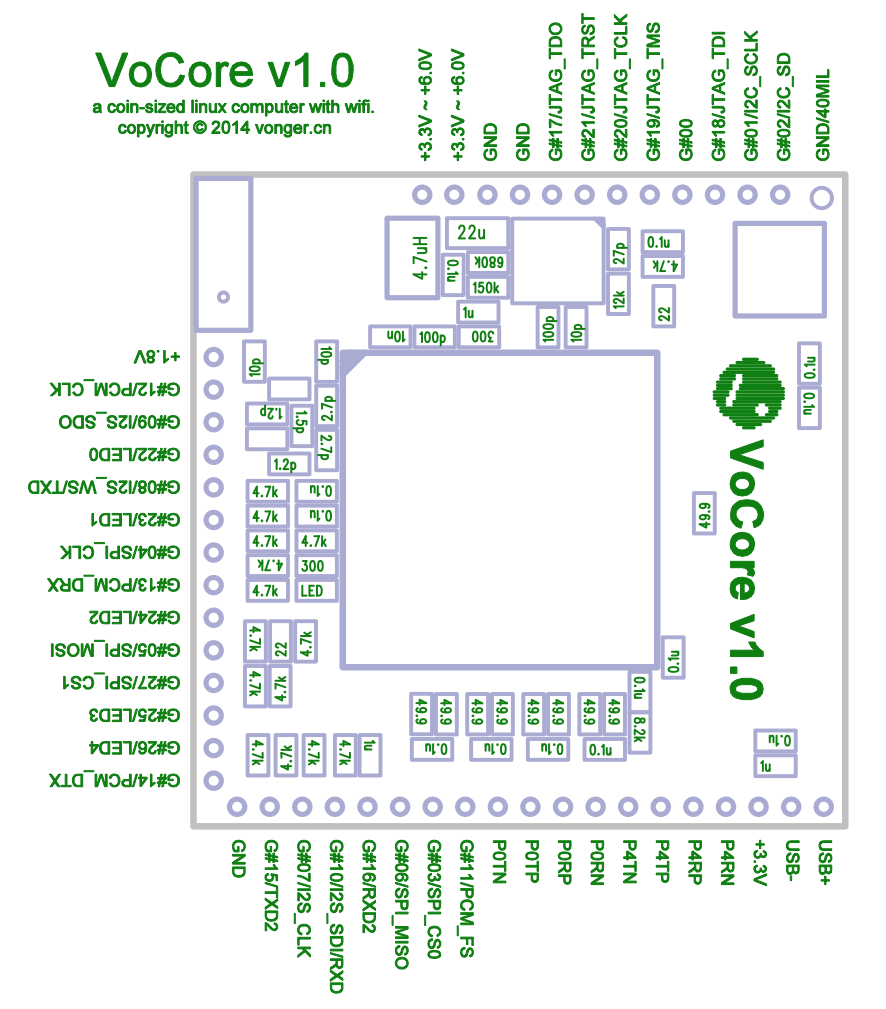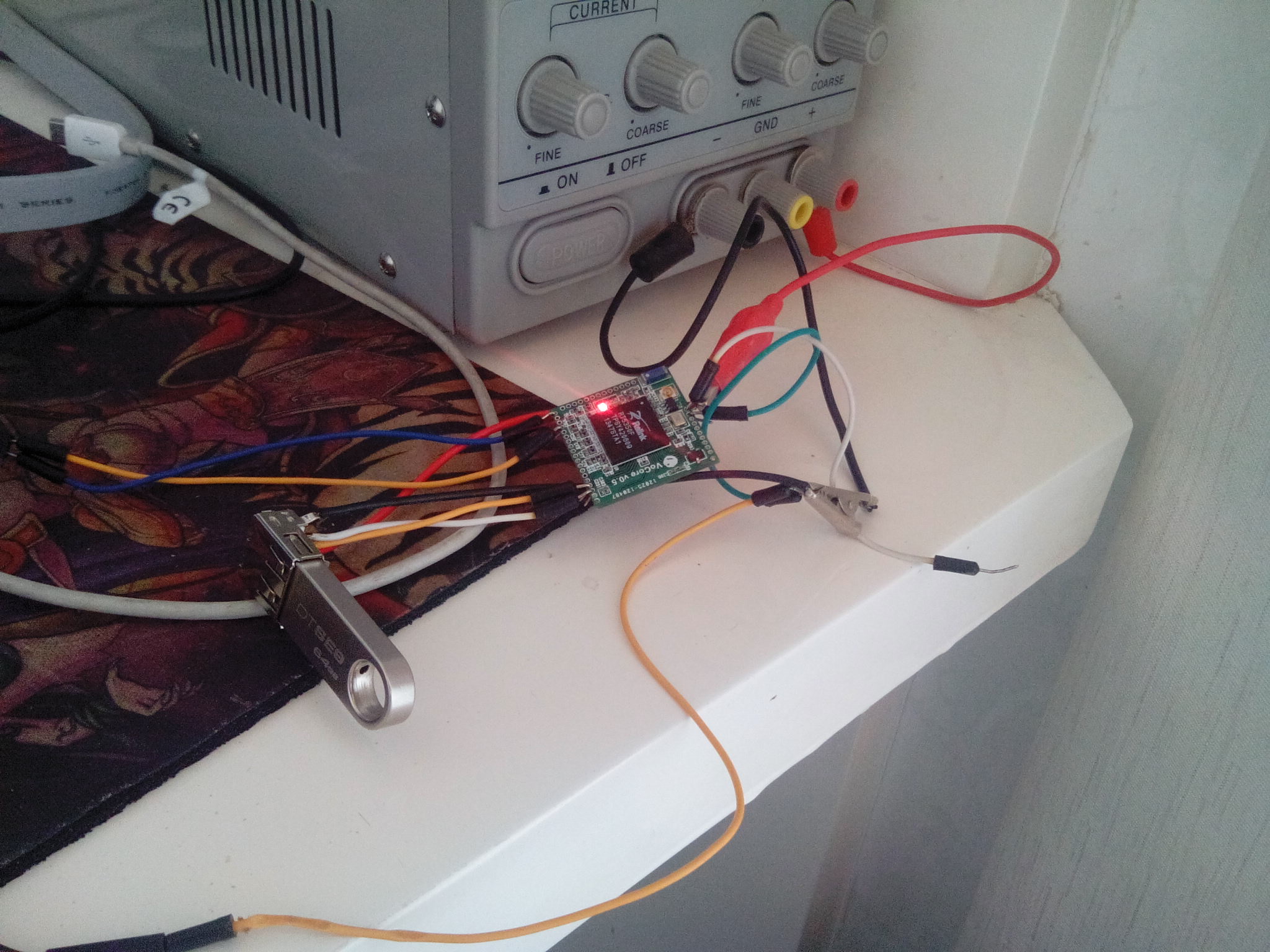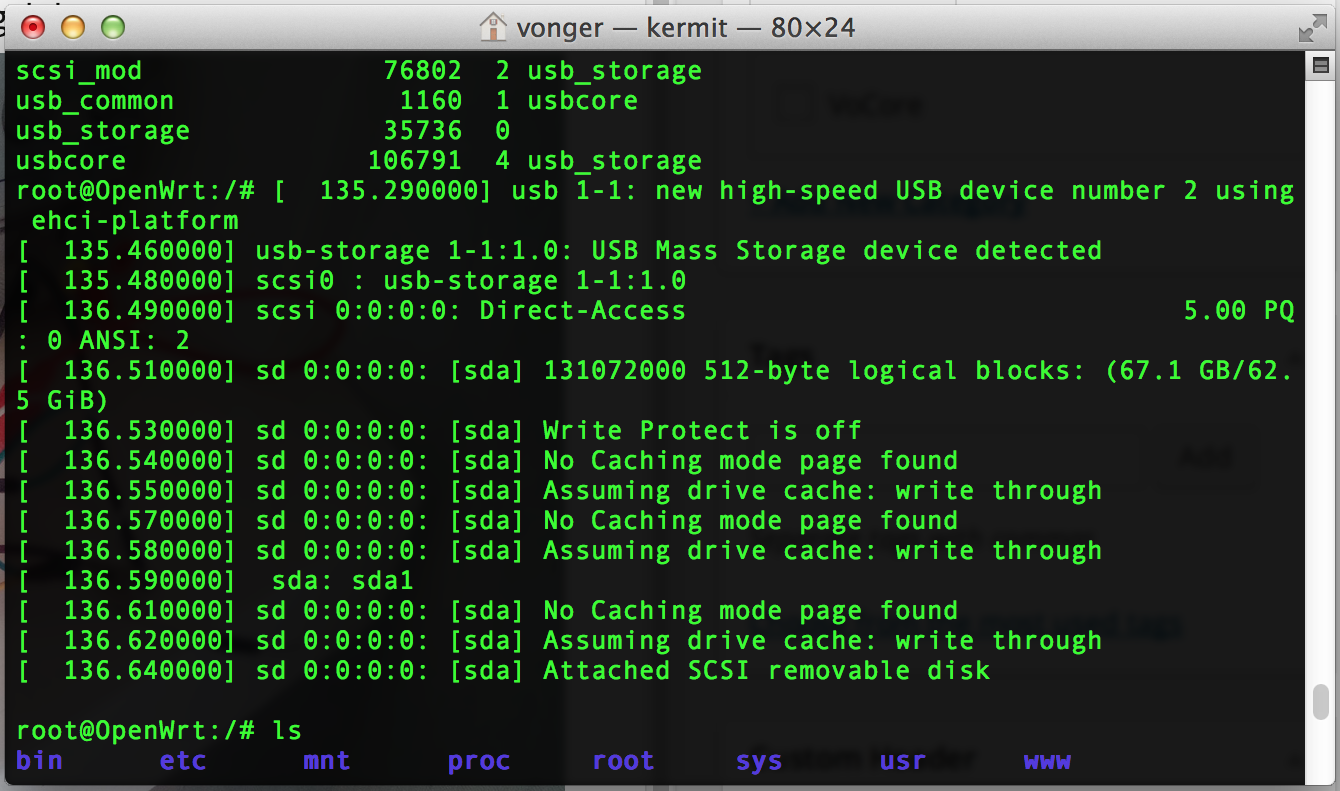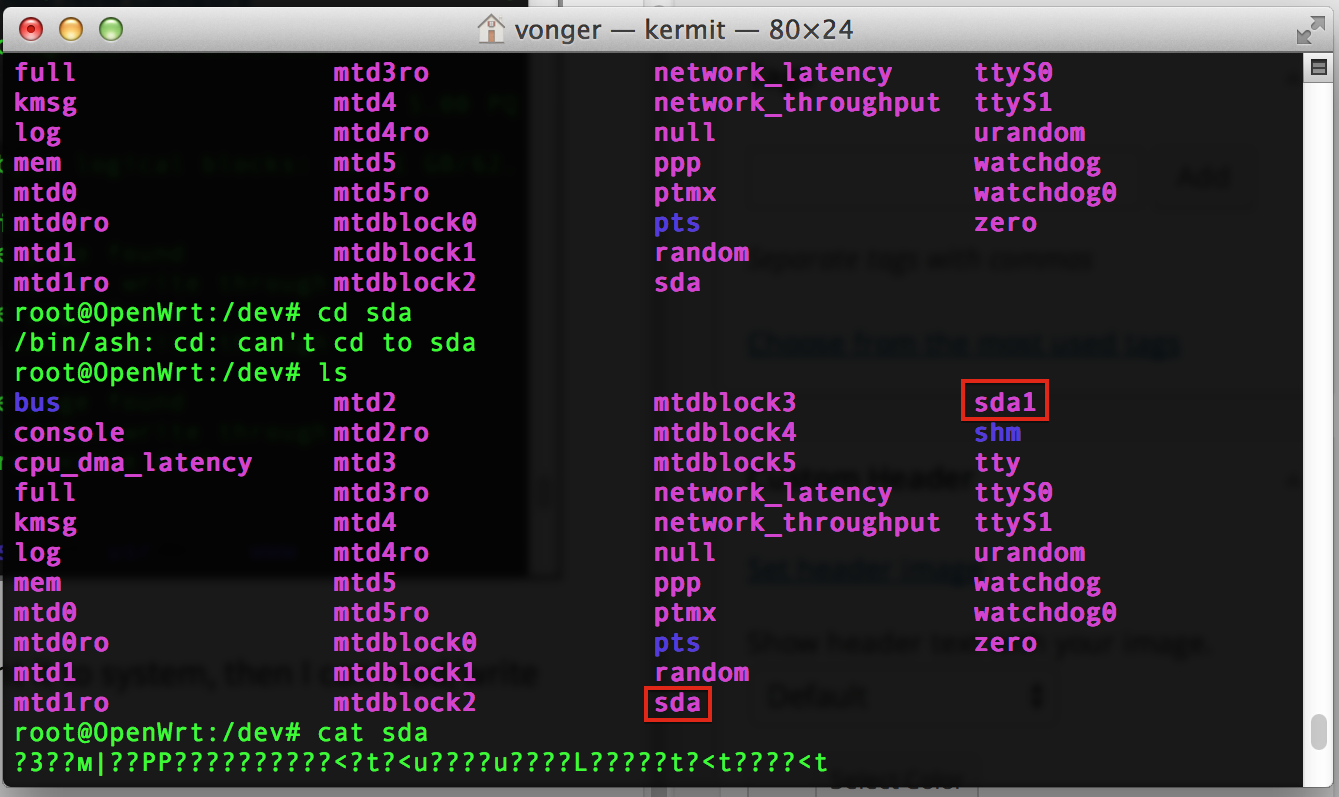Get the 300 pieces from factory:
The alpha version have tons of bugs, be happy to catch them 😀
From my first test, there are two main problems:
1. the board is not stable through 3.3V~6V port, many oops when system boot up, but through 3.3V pin(input set to 3.1V~3.2V), the system works normal.
2. From computer/phone we are able to find VoCore wifi hotpot, but after connect to it, it shows a warning, can not ssh to the board. 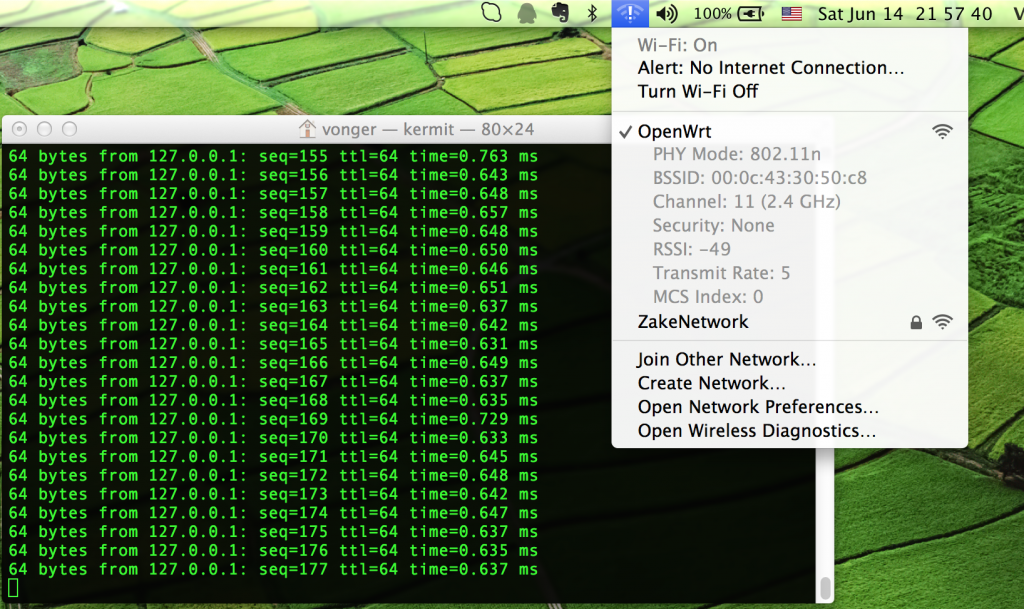
First problem, I think it is PCB problem or design problem. But the design is copied from v0.5(some wire changed, I must compare them. Never be too careful, specially on hardware), and v0.5 is normal. So high chance to be PCB problem. Might be crosstalk? From my simulation the max crosstalk is 84mV(3.0V, 1.0ns), in most situation the max allowed value should be 150mV.
Second problem, just no idea, might caused by first problem. Same firmware works well on v0.5 but not this one.
From the factory engineer, he said two points must be improved in next PCB version:
1. V-CUT border is too closed to each other, some pin hole might be broken after SMT.
2. V-CUT is not good for such small board, the copper is easy to be stretched when they cut it into pieces, so it will effect signal.
I thought there might be some small problem such as wifi signal in the alpha version but I never thought these problems are so big…None of that happens to my test version v0.3 or v0.5.
I am really sorry, I planed this version should be at least as good as v0.5… I will also ship a small gift to all the alpha tester(USB<=>TTL/UART device), hope your testers will be a little happier. 🙂
And the boards will be shipped in this week. I am so limited, please help me make it better, really appreciate!

